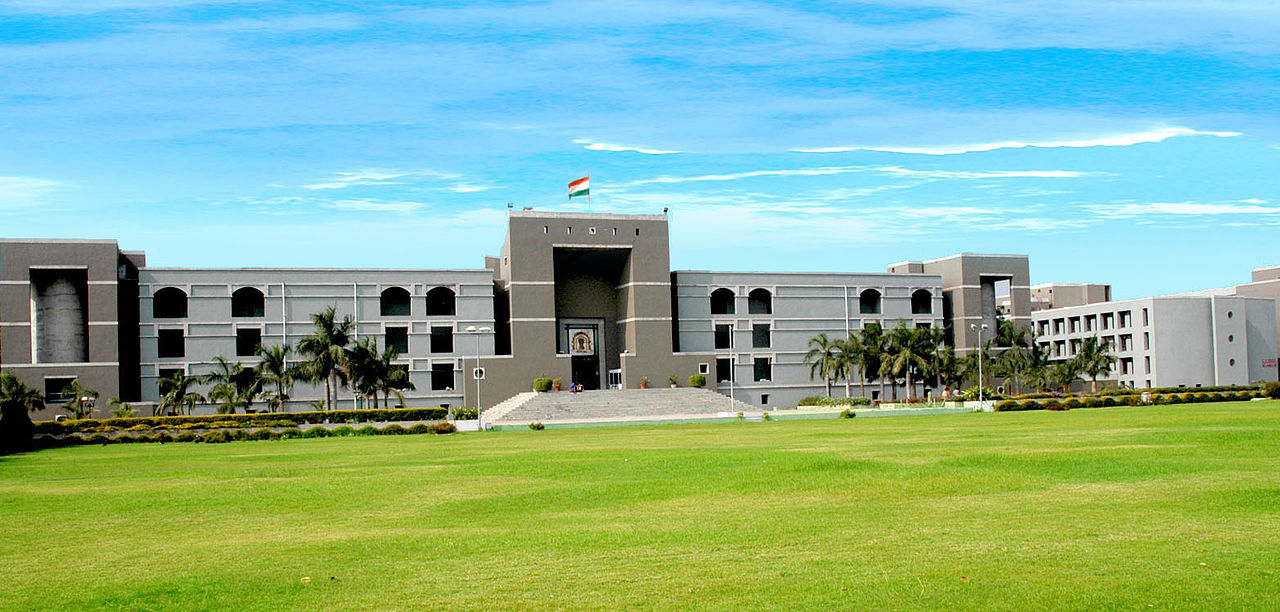It is a kind of moral science lesson: Gujarat HC on plea against Bhagavad Gita teaching in schools
November 22, 2024
Ahmedabad: The Gujarat High Court on Thursday, November 21, while hearing a petition challenging the state government’s decision to introduce teachings from the Bhagavad Gita in schools. The court observed orally that the teachings are rooted in morality and culture, rather than religion.
A division bench, comprising Chief Justice Sunita Agarwal and Justice Pranav Trivedi, was hearing a public interest litigation (PIL) against a 2022 resolution issued by the state education department. The resolution required the incorporation of values and tenets from the Bhagavad Gita for students in grades 6 through 12, starting in the 2022-23 academic year. It cited the “inspiration and guidance” of the NEP 2020. The petition was filed by organizations such as Jamiat Ulama-e-Hind Gujarat and the Jamiat Ulama Welfare Trust, which sought a stay on the resolution.
The petitioners’ senior counsel argued that the resolution mandated the incorporation of principles, tenets, and prayers from the Bhagavad Gita, contradicting the NEP’s guidelines for teaching values that reflect a secular and ethical ethos across religions. The counsel pointed out that, in a similar context, the Supreme Court had recognized universal moral principles present in all religions that support good human values and can be included in education.
During the hearing, the court remarked, ‘This is a kind of moral science lesson.’ In response, the petitioners’ counsel argued that moral science is a neutral subject and noted that the state had not filed a response to the petition, despite previous court orders.
The division bench observed, “The initiative is only to introduce teachings…teachings of like… you can say the document or preaching”. When the counsel argued that the policy should adopt a comprehensive approach instead of focusing solely on the Bhagavad Gita, the court noted, “It is one at a time… Suggest someone else, they will do it.”
The Counsel also argued that the State lacks the authority to dictate such matters and that curriculum decisions fall under the jurisdiction of statutory bodies recognized by the National Education Policy. He further asserted that the resolution originates from the State, and they are required to file a response.
In response, the court noted that the State has the authority to issue directions regarding school education. The Counsel pointed out that the National Policy designates specific authorities for curriculum-related matters. The court then observed that the State’s role appeared to be limited to suggesting changes, with the final decision resting with the competent authority. The Counsel countered, arguing that the State has proceeded with the implementation without following proper procedures, which contradicts the policy. He urged that the State should halt its actions.
The Division Bench remarked that the proposal aligns with the National Education Policy, which focuses on fundamental principles of culture, not religion. The Senior Counsel argued that the teachings of any religious book are not part of culture but rather belong to that religion’s tradition.
The court countered, “It is not religion, its morality. It’s the part of the culture and these are the infact moral science lessons. Bhagavad Gita is nothing but Moral Science. We all use to read those western moral science lessons for years altogether. It must be uniform but it is one by one. There is nothing in this. This is nothing but only propaganda. Only propaganda. We are fixing the date after a month.”
The counsel then argued that the court would conclude that it is simply propaganda after reviewing the National Education Policy.
The court responded, “See Mr. Counsel, Bhagavad Gita has no religious preaching. “Karm kar phal ki iccha matt kar” (Do your work and do not expect results) this the basic fundamental, moral principle”
Observing that it did not see any urgency in the matter, the court posted the case for hearing on December 23rd. DeshGujarat
Recent Stories
- Attack on Sardardham Vice President; Khodaldham fame Naresh Patel's involvement alleged
- Doctors of Adani-run G.K. General Hospital in Bhuj go on strike
- District collectors of Bharuch, Vadodara, Narmada supporting sand mafias, alleges MP Mansukh Vasava
- One side of Shastri Bridge in Ahmedabad to shut for repair work
- Surat's first indoor sports facility center to be built under Parle Point bridge
- Gujarat's milk production up by 119.63 lakh metric tons in 22 years; average growth of 10.23%
- Navjot Sidhu shares wife's diet plan that "helped her overcome stage 4 cancer"
